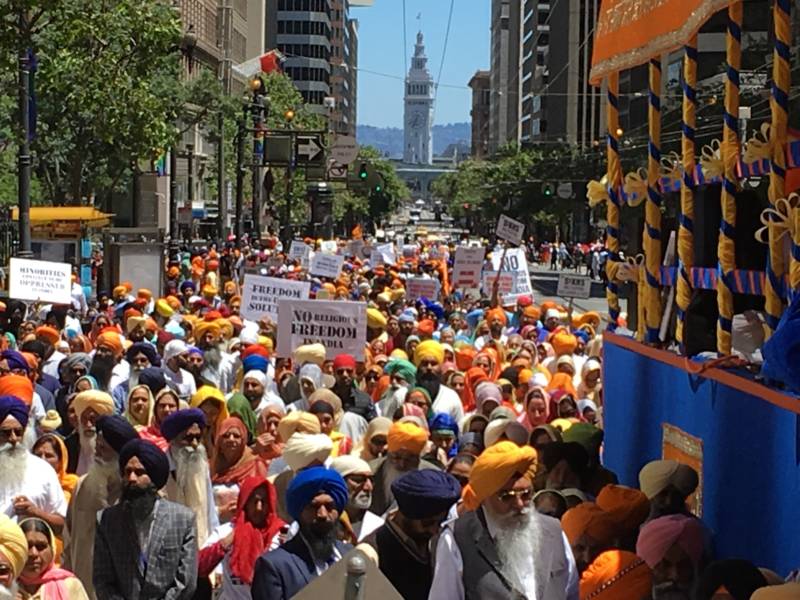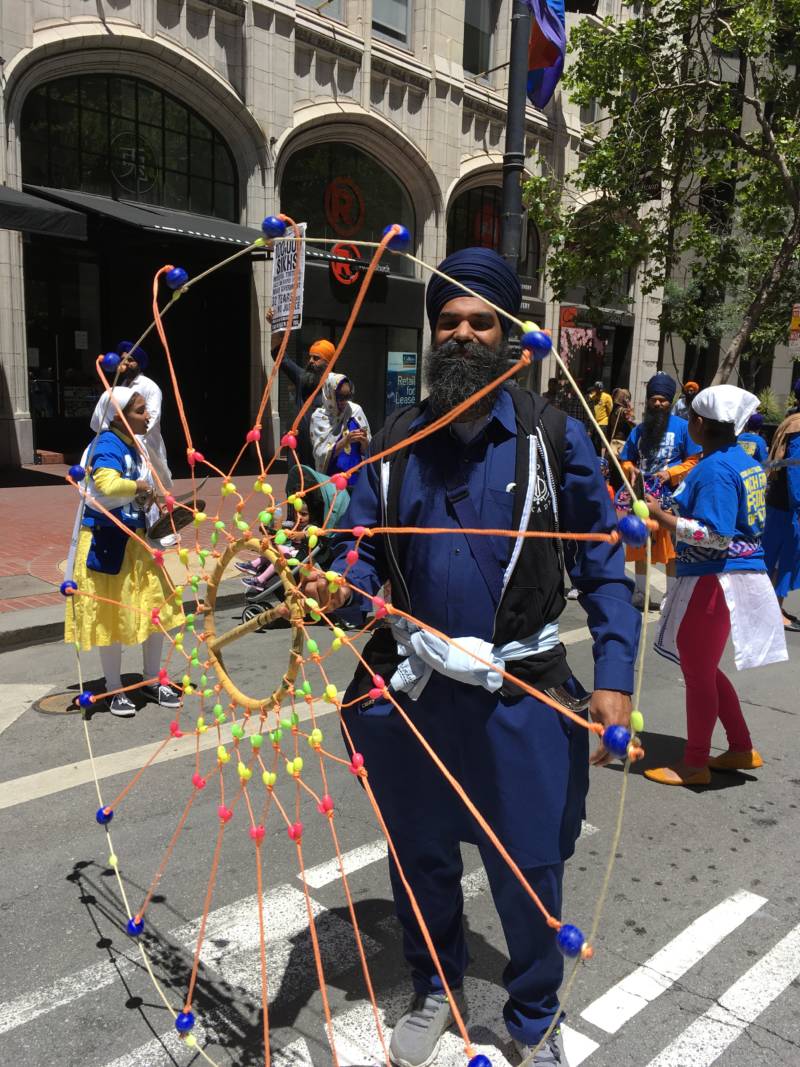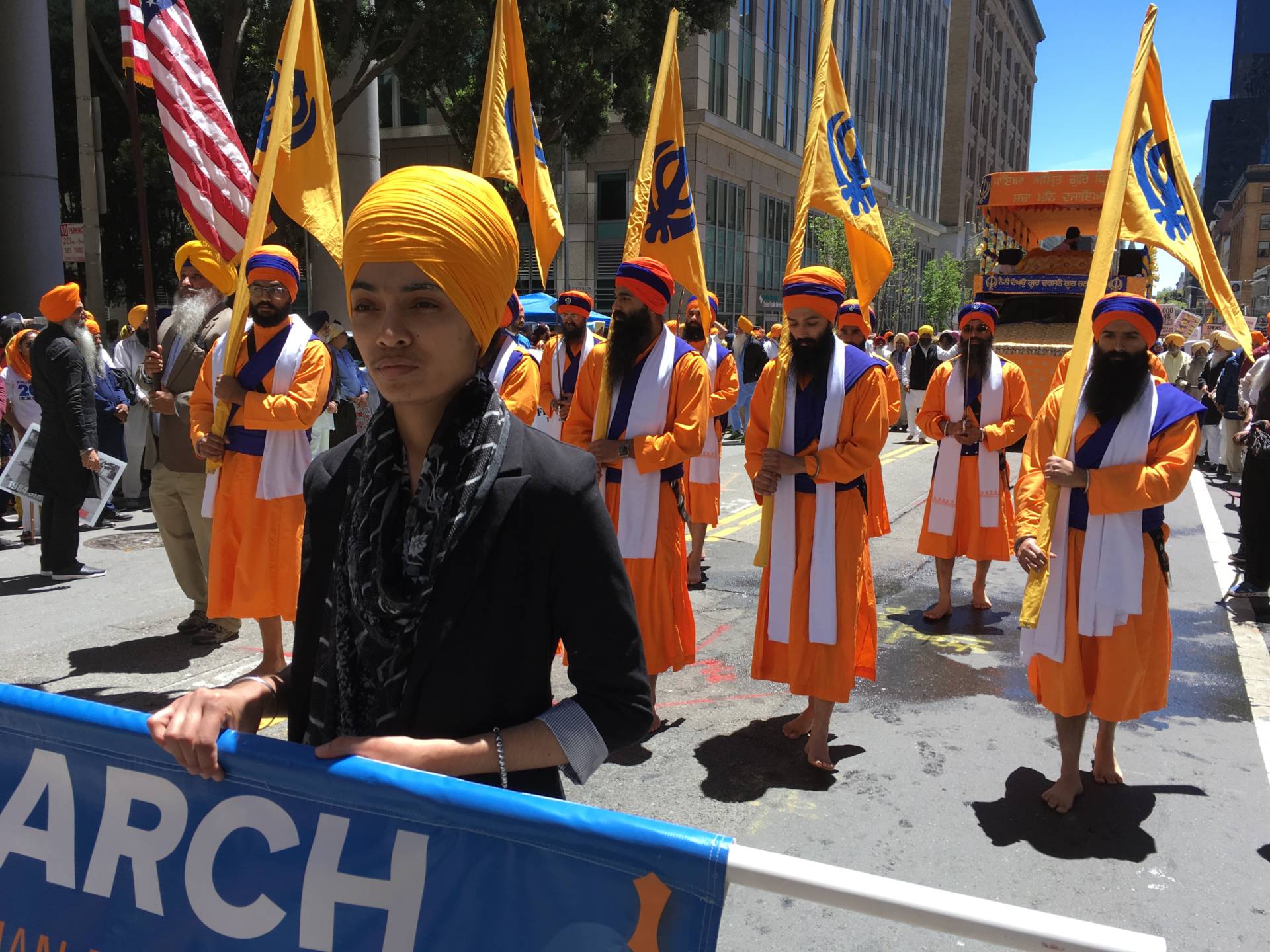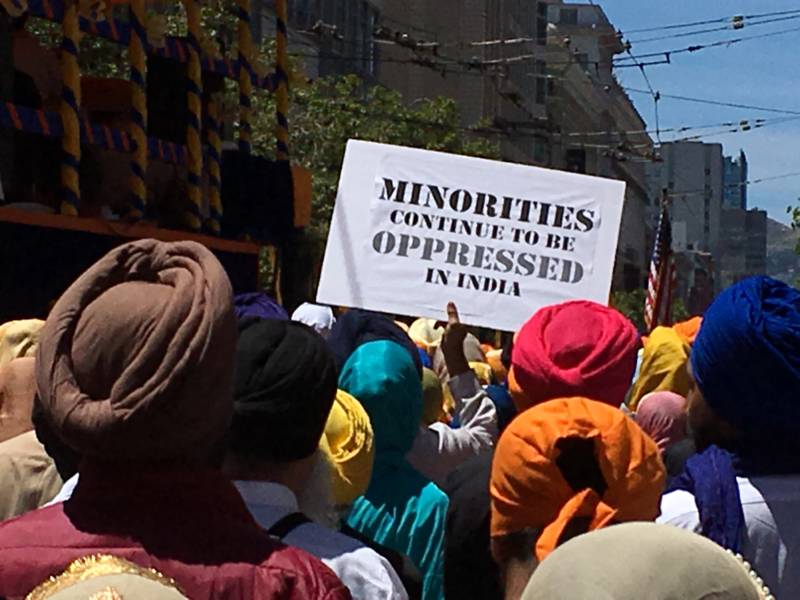Thousands of California Sikhs and their supporters came out to participate in the 5th Annual Remembrance March and Freedom Rally in downtown San Francisco on Sunday. California is home to close to half of the American Sikh population, many of whom live in the Central Valley.
Marchers and supporters came from all over the Bay Area and the surrounding areas, and many of the men, women and children who marched from downtown San Francisco to Civic Center on Sunday wore brightly colored turbans or headscarves and carried signs.

The event had a dual purpose. It was in part meant to raise awareness and understanding of Sikhism, one of the world's largest religions with more than 20 million adherents.
“I’m here for the religious aspect of this, to be with my people and to celebrate the religion," said 16-year-old Parmvir Singh. Sikhs have often been the target of hate crimes in the United States, especially since 9/11, often being mistaken for Muslims.

Ravreet Singh drove two hours from Turlock to attend Sunday's rally. He says that in recent years, people in California are “beginning to know who we are and not confuse us with other religions.”


